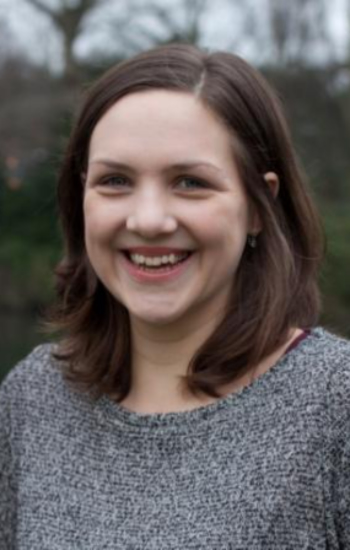Side projects and small impacts can make large waves. Dr Claire McMullin, Computational Teaching Fellow and Director of Year 1 Studies at the University of Bath, shared insights from her career journey.
What is your job?
I’m a computational chemist, with a focus on inorganic reaction systems and explaining observed experimental trends. I work at the University of Bath, but my job role is a little trickier to answer.
Four days a week, I’m employed as a Teaching Lecturer and the Year 1 Director of Studies. On the fifth day I’m a postdoctoral research assistant (PDRA), overseeing the computational aspects of an Engineering and Physical Sciences Research grant.
Tell us about your career path.
I completed my undergraduate and PhD studies at the University of Bristol – under the supervision of Guy Orpen and Natalie Fey – using crystallography and computational chemistry to investigate organometallic complexes.
I wanted to do a post-doc in the US, so I wrote to a few American computational chemists to see if they had funding or a role available. Luckily one did, and I moved to Denton (University of North Texas) to work with Tom Cundari.
I missed the UK, and so returned a year later to Edinburgh for a three-year post-doc with Stuart Macgregor at Heriot-Watt University in collaboration with Dai Davies at the University of Leicester.
Then I joined Bath, initially as a full-time Teaching Fellow for Computational Chemistry. I was lucky there were computing facilities that had a ‘free queue’ to submit calculations, and I was approached by a new colleague, who asked me if I’d be interested in modelling their reaction systems. I had gained a new side-project and hobby for my evenings.
Eventually, more people asked for me to look at their systems, mostly as the department didn’t have anyone with my specific inorganic and organometallic mechanism skills.
Now, over six years later, I’ve almost finished a three-year grant, published 36 papers, developed connections and external collaborators, and secured more funding to run calculations on our ‘premium’ queue. The only downside is that my research is rarely recognised by the university, as it’s not officially part of the role description of my employment.

Pictured above: Dr Claire McMullin
What is a typical day like in your job?
I tend to get to my office after 8am, and deal with any overnight emails first, before checking our High Throughput Cluster for how my calculations are doing. Teaching begins from 9:15am, and my day tends to be full of meetings (online nowadays), lectures and labs.
Something will always come up that I wasn’t expecting, be it teaching or research related. I always have a page-long to-do list. Normally, I manage to achieve two to three things a day, but almost always end up adding more things to it!
>> Get involved in the SCI Young Chemists’ Panel.
Which aspects of your job do you enjoy most?
I really enjoy the collaborative nature of my work – be it lecturing or teaching a lab to students, seeing a student having that ‘a-ha’ moment, or talking to my colleagues in the department about plans or issues we are trying to resolve.
Similarly, with the research I do, I am often trying to explain someone’s experimental data. I like trying to provide answers or reasons for the chemistry that has occurred. It’s almost like trying to understand a puzzle, and seeing a calculation finished always sparks joy in me!
What is the most challenging part of your job?
The emails, and the tasks and requests they bring, can sometimes derail my entire day (or week).
How do you use the skills you obtained during your degree in your job?
I feel incredibly lucky that, on any given day, I can submit a calculation and use the computational skills I developed during my degree. But I use much more than computational knowledge – doing a degree teaches you to be organised and methodical, as well as how to juggle several tasks at once.
The demonstrations I did as a PhD student are now used daily in labs. The research talks I gave have given me the confidence to stand up in front of a room full of students and lecture them on a range of topics. And the papers and thesis I wrote have given me a keen eye for detail and editing other people’s documents.
>> Read how Ofgem’s Dr Chris Unsworth creates an inclusive working environment and transfers his PhD skills.
Is there any advice you would give to others interested in pursuing a similar career path?
There are so many points where the ‘leaky pipeline’ could have meant I left chemistry and academia. In all honesty, I’m not quite sure how or why I’m still here! [A lot of it is about] luck, being in the right place at the right time, or a job vacancy coming up when you need a new position.
Timing really is key. It’s half-worked out for me. I’m now permanent in my teaching role and still get to run my calculations, which I love; but that often comes at a cost to my own time and is done more as a hobby than something I’m paid to do. It doesn’t work out for everyone, and that is no reflection on their skills or abilities.
I’ve always had back-up plans or ideas if I decided to exit the academic highway. So, if you do want to pursue a career similar to mine, make sure you have something else to fall back on. And just keep working hard, slowly building on the work you want to do. Small impacts can end up making large waves.




